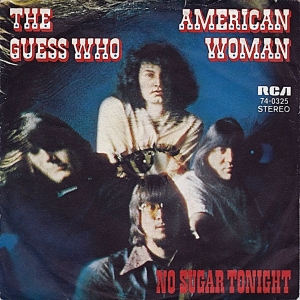 | All Right NowFree |
Writer(s): Andy Fraser, Paul Rodgers (see lyrics here) Released: May 15, 1970 First Charted: June 6, 1970 Peak: 4 US, 3 CB, 4 HR, 1 CL, 2 UK, 4 CN, 44 AU, 3 DF (Click for codes to singles charts.) Sales (in millions): -- US, 0.4 UK Airplay/Streaming (in millions): 4.0 radio, 19.5 video, 237.37 streaming |
Awards:Click on award for more details. |
About the Song:Before forming Bad Company, singer Paul Rodgers and drummer Simon Kirke were in the band Free. The group were just teens when they formed in 1968 – bassist Andy Fraser was just 15. Their first album, Tons of Sobs, barely dented the U.S. charts at #197. Their 1969 self-titled album climbed a bit higher to #177 and reached #22 in the UK. When it came time to record what become their third album, 1970’s Fire and Water, the band knew they needed a hit – something “to get the audiences on their feet.” UCR As Kirke said, “Our repertoire at that time was mostly slow and medium paced blues songs which was alright if you were a student sitting quietly and nodding your head to the beat. However, we finished our show in Durham and walked off the stage to the sound of our own footsteps. The applause had died before I had even left the drum riser. When we got into the dressing room, it was obvious that we needed an uptempo number, a rocker to close our shows…Inspiration struck Fraser, and he started bopping around singing ALL RIGHT NOW... He sat down and wrote it right there in the dressing room. It couldn’t have taken more than 10 minutes.” SF They recorded the song mostly live in the studio with Rodgers adding vocals later. Fraser said the band wasn’t that keen on it, but Chris Blackwell – President of Island Records – released it anyway. The song with “a healthy helping of cowbell proved to be just what the doctor ordered.” UCR Some claimed the main riff was taken from the Rolling Stones’ “Honky Tonk Women” but Fraser said he “was trying to imitate Pete Townshend, who he calls ‘the best chord player.’” UCR “Steve Miller later admitted that the intro to ‘Rock N’ Me’ was a nod to Free guitarist Paul Kossoff, and the soon-to-be-famous intro from ‘All Right Now.’ The inspiration was karmic, because both tunes had been born out of a desire to inject a heavy dosage of rock into an otherwise mid-tempo set.” UCR Resources:
Related Links:First posted 7/26/2022. |









